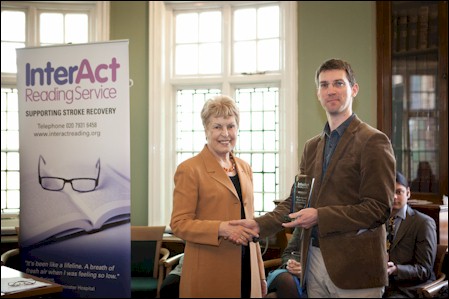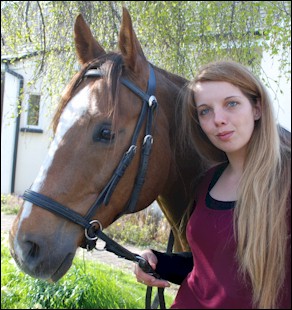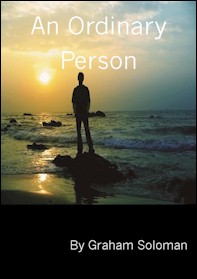Our Interactions in This Business
By G. Miki Hayden
Instructor at Writer's Digest University online and private writing coach
firstwriter.com – Sunday May 19, 2024
At the heart of much of what we accomplish in this life, very much including how well we do as writers, lies how we conduct our relationships, knowingly or unknowingly.
For instance, I’m pretty sure my neighbor is annoyed with me. From time to time I’ll edit a piece of writing for him, as I did recently. I don’t charge him anything, but he will sometime thereafter take me to lunch. Generally, we’re on quite good terms, but what he sent me this last time had a tone that I didn’t think was his, and the way the material was phrased I felt was unwise. Yet the letter—that’s what the note was—made me bristle. The intent was to let a government entity know that the group requesting some action had a distinct amount of power and had better be listened to.
Seriously? Was the group a unified segment of voters? Indeed, does any portion of voters speak as one mind, particularly a faction stated to be one million individuals strong? The sense of this was: If you don’t listen to our demand, we won’t vote for you, and you’ll be sorry.
My neighbor always politely says that if I think of something else to add to his piece, to include any other ideas. I, instead, changed that part of the letter to give thanks for prior deeds that were kind and helpful to members of the group. I thought gratitude for significant aid in the past was perhaps an improvement over a snarkish threat.
But I knew rather well, or assumed, that my friend wouldn’t like the change. And though I have seen him since, we haven’t talked about what I had done, and he hasn’t invited me to lunch as a transactional reciprocation. (I have eaten perfectly well since, anyway.)
But what I’m talking about here is that in the world of writing and publishing, either we can offend others unintentionally or accept that what we may say or do will throw the relationship out of whack.
How we interact with agents, editors, clients, instructors, fellow strivers, and students will certainly affect outcomes involving our desired career.
In another recent instance, a fellow writer sent me a published novel of his that was going to be reissued soon. At the same time, he promised to interview me for his blog since I’m seeking promotion for my latest novel in print (Dry Bones, a police procedural). I told him I liked his novel, and I did, but later he completely blew up when I repeated that I liked the novel, but having in mind that it was going to be reissued, I said he had a certain constant glitch in the punctuation. Oh well, that saved me an hour or two of not writing the answers to his questions for his blog. He then blocked me on Facebook.
I didn’t intend to annoy him; my intention was to help. But maybe he didn’t know that I’ve spent more years than I care to admit trying to make the writing of others more effective.
To continue on the relationship theme: I do have some positive interactions; really I do. I and another author friend I have known for years have developed a cooperation that includes exchanging any market information we come across and giving general support in a very tough business. We have materially helped one another in publishing everything from short stories to novels and have traded advice. If I edit her short story, she welcomes the changes, and she has sent me contact information for places where I might list my work, and vice versa. Even if the suggestions are somewhat flawed (as life might go), no problem. We’re pretty much in synch.
I often become friendly with my editing clients, and, here too, I’ll send suggestions even years later of where they might sell, or give encouragement—or discounts in editing. But I won’t do much for someone who hasn’t gotten back to me to explain not finishing a project. Or, as with someone I responded to on a request that was unclear, later, I found he was looking for suggestions as to markets for his work. Uh, good markets are like gold, not to be set out on the table for anyone who comes along. I like to be helpful, but not willy-nilly. (Let’s not ask for more than we have earned.)
What I really have been thinking of for years in regard to relationships in publishing is the advice given to promote ourselves, and the fact that if a personality is an irritating one, the person would be best hanging back. But can one know that they are being irksome? Probably not.
I hear almost regularly from a member of my membership writing guild. Something is off about the way she presents herself. She’s high maintenance. So what do I do? I try to be nice at the cost of two or so minutes of emailing. Yeah, why not. But I wonder how she comes off to agents she might query. Or on the page.
This is a seriously difficult business. Maybe have your query letters edited. Treat your contacts nicely. Don’t complain. Thank people for pointing out your errors. Don’t expect too much of others, but try to be helpful, especially if you have received good information from them. Find the one or two people who are as polite and cooperative as you are and trade good info with them. Do your best to promote others as you would promote yourself. Build good karma. And if you feel you must be honest with others about their work so they might become better writers, then go ahead.
About the Author
G. Miki Hayden is a short story Edgar winner. She teaches a mystery writing and a thriller writing and other writing classes at Writer's Digest online university. The third edition of her Writing the Mystery is available through Amazon and other good bookshops. She is also the author of The Naked Writer, a comprehensive, easy-to-read style and composition guide for all levels of writers.
"Holder, Oklahoma Senior Police Officer Aaron Clement is out for justice above all, even if he irritates the local hierarchy. Hayden in Dry Bones gives us nothing-barred investigation and plenty of nitty-gritty police procedure—which makes for a real page turner." — Marianna Ramondetta, author of The Barber from Palermo




 The Book Inside You: The Business Of Selling It
The Book Inside You: The Business Of Selling It Days of The Jackal: how Andrew Wylie turned serious literature into big business
Days of The Jackal: how Andrew Wylie turned serious literature into big business 3 Ways to Price Your Work for Your Freelance Writing Business
3 Ways to Price Your Work for Your Freelance Writing Business Books are my business: Founder of Fish Publishing Clem Cairns
Books are my business: Founder of Fish Publishing Clem Cairns firstwriter.com subscriber wins Ruth Rendell Short Story Competition
firstwriter.com subscriber wins Ruth Rendell Short Story Competition Getting to know you: 8 questions to ask an interested agent
Getting to know you: 8 questions to ask an interested agent Promotional tips
Promotional tips How I got a literary agent - An interview with author James R. Larson
How I got a literary agent - An interview with author James R. Larson How I got a literary agent - An interview with author Adrienne Schwartz
How I got a literary agent - An interview with author Adrienne Schwartz Staying positive about publishing
Staying positive about publishing How I got a publishing deal - An interview with author, Rachel North
How I got a publishing deal - An interview with author, Rachel North How I got a literary agent - An interview with author, Graham Soloman
How I got a literary agent - An interview with author, Graham Soloman How I got a publisher - An interview with author, Lorna Elliott
How I got a publisher - An interview with author, Lorna Elliott New Literary Agent Listing: Steph Thwaites
New Literary Agent Listing: Steph Thwaites Lucy Holland to lead Curtis Brown Creative's new Writing Fantasy course
Lucy Holland to lead Curtis Brown Creative's new Writing Fantasy course Ursula K. Le Guin's home will become a writers residency
Ursula K. Le Guin's home will become a writers residency New Literary Agent Listing: Hillary Fazzari
New Literary Agent Listing: Hillary Fazzari Writers’ Guild of Great Britain demands fair pay for writers ahead of general election
Writers’ Guild of Great Britain demands fair pay for writers ahead of general election New Literary Agent Listing: Rosie Pierce
New Literary Agent Listing: Rosie Pierce Penguin seeks out emerging talent in science fiction and fantasy through WriteNow
Penguin seeks out emerging talent in science fiction and fantasy through WriteNow Jo Unwin to leave publishing for new career
Jo Unwin to leave publishing for new career Anthony Horowitz: writers should not be told to make books more diverse
Anthony Horowitz: writers should not be told to make books more diverse New Literary Agent Listing: Jess Molloy
New Literary Agent Listing: Jess Molloy How to find a literary agent: A masterclass with Juliet Mushens
How to find a literary agent: A masterclass with Juliet Mushens New Irish literary magazine ‘Ragaire’ to be launched in Galway
New Irish literary magazine ‘Ragaire’ to be launched in Galway New Literary Agent Listing: Donya Dickerson
New Literary Agent Listing: Donya Dickerson Expand your mind with a new magazine of psychedelic art and literature
Expand your mind with a new magazine of psychedelic art and literature WME Acquires Ross Yoon Agency in Expansion of Literary Talent Portfolio
WME Acquires Ross Yoon Agency in Expansion of Literary Talent Portfolio
